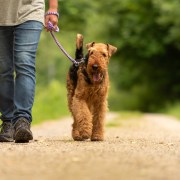This week, a mountain lion was spotted in the city of Fort Collins. Domestic cats and dogs can be easy prey for these animals, but there are actions you can take to help protect them. “We can live with these incredible animals if we respect mountain lions and their habitat,” says Jason Clay with Colorado Parks & Wildlife. According to Colorado Parks & Wildlife, here are some tips to help protect your pets:
- Make lots of noise if you come and go from dusk to dawn – the time’s mountain lions are most active.
- Install outside lighting. Light areas where you walk so you could see a lion if one were present.
- Landscape or remove vegetation to eliminate hiding places for lions. Make it difficult for lions to approach unseen.
- Planting non-native shrubs and plants that deer often prefer to eat encourages wildlife to come onto your property. Predators follow prey. Don’t feed wildlife!
- Keep your pets under control. Roaming pets are easy prey and can attract lions. Bring pets in at night. If you leave your pet outside, keep them in a kennel with a secure top. Don’t feed pets outside; this can attract raccoons and other animals that are eaten by lions. Monitor your pets when they may be out during the day using the bathroom.
- Place livestock in enclosed sheds or barns at night. Close doors to all outbuildings since inquisitive lions may go inside for a look.
- Encourage your neighbors to follow these simple precautions. Prevention is far better than a possible lion confrontation.
If you were to encounter a mountain lion while on a walk with your pet, what should you do? According to Clay people rarely get more than a brief glimpse of a mountain lion in the wild, but if you do:
- Stop, do not approach the lion, and do not run.
- Stay calm, face the lion, and talk calmly and firmly to it. Back away slowly if you can while still facing it.
- Do all you can to appear larger by raising your arms or opening your jacket if you are wearing one.
- Make sure you have your pet on a leash. Unleashed dogs are at greater risk of negative interactions with lions.
- If you have small children with you, protect them by picking them up so they won’t panic and run.
- If the lion behaves aggressively, throw stones, branches, or whatever you can get your hands on without crouching down or turning your back.
- If a lion attacks you, fight back. People have fought back with rocks, sticks, jackets, keys, backpacks, and their bare hands successfully.
Mountain lion sightings should be reported to Colorado Parks and Wildlife by calling your local CPW office (970-472-4300 for Fort Collins), Monday-Friday, 8 a.m. to 5 p.m., or Colorado State Patrol (303-239-4501) if it is outside of regular business hours and requires an urgent response from a wildlife officer. If it is outside of regular business hours and just a sighting – there is no aggression, unusual behavior, or threats to livestock or the public – then they instruct the public to report those during normal business hours to their local CPW office.
Clay says, “We track all bear and mountain lion sightings and that data is important to wildlife managers, but it is also important for the local wildlife officers to have the pulse of mountain lion activity in their area. It helps wildlife managers alerting the public of activity and gives us a chance to help reduce conflicts – whether that be with landowners who have livestock, pet owners, or people recreating in lion country.”





